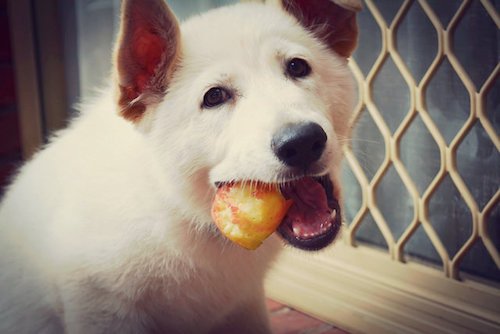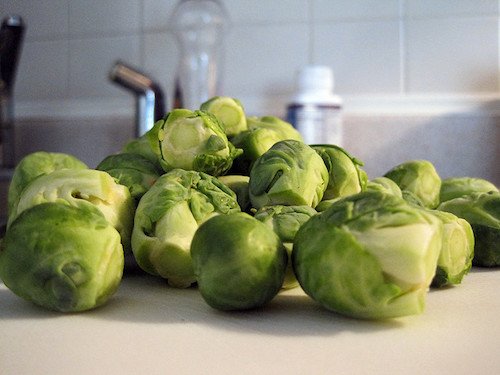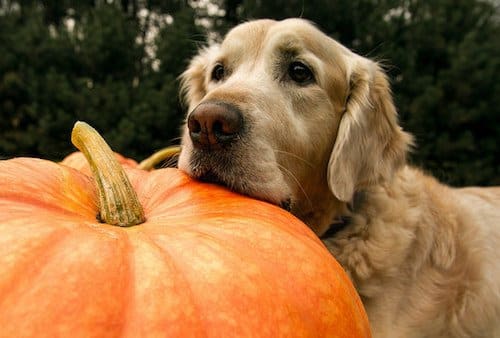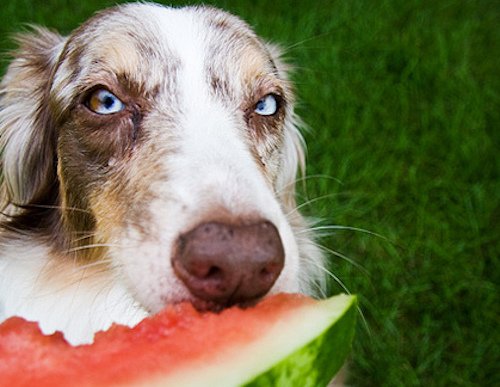Spunky here with the latest in nutrition for my furbling friends that may need a hand at what they can beg for! BOL...
W e love our veggies now. No we are not vegetarians although I hear through the barkvine some have turned! Wowsers what a leap off the menu they took, buts I hear they are healthy so three barks fur them.
10 Best Fruits and Vegetables for Dogs
Dogs Like Veggies, Too
If you’re on the lookout for new and fun ways to rev up your furry best friend’s diet, adding fruits & vegetables can be a really healthy way to do that. Of course, certain ones are better for your dog than others. Check out the 10 best fruits & vegetables for dogs, and consider adding them to your own dog’s meal routine.
1 of 11
We
know fruits and vegetables are packed with healthy vitamins and
minerals. We know they perform wonders for the body. But do they offer
the same benefits to our dogs?
Certain fruits and vegetables are definitely more suitable for dogs than others. (And some should absolutely be avoided—a few of those are mentioned here.) Research is mixed as to whether your dog needs veggies and fruits, but some promising studies have shown that supplementing with certain vegetables, in particular, is good for your dog. This study showed a reduced rate of cancer in Scottish terriers that ate leafy greens three times a week, for instance.
We’ve put together a list of the best, most nutritious and suitable fruits and veggies for your pet. These can help with stomach upset, freshen the breath, boost immune and heart health, and tidy up the digestive tract.
 Apples
contain antioxidants, dietary fiber, vitamin A, and vitamin C. Some
dogs will enjoy their crunchy texture (almost like a chew toy!). They
help freshen doggy breath and improve dental hygiene. With their fibrous
insides, they’re a bit like all-natural denta-bones. But be sure to
wash and slice apples before serving, and remove the core and seeds,
which contain trace amounts of cyanide. You can also add a bit of peanut
butter if your dog is reluctant to give the fruit a try at first.
Apples
contain antioxidants, dietary fiber, vitamin A, and vitamin C. Some
dogs will enjoy their crunchy texture (almost like a chew toy!). They
help freshen doggy breath and improve dental hygiene. With their fibrous
insides, they’re a bit like all-natural denta-bones. But be sure to
wash and slice apples before serving, and remove the core and seeds,
which contain trace amounts of cyanide. You can also add a bit of peanut
butter if your dog is reluctant to give the fruit a try at first.
 Brussels sprouts
are rich in fiber and antioxidants, which help reduce inflammation in
the body and improve overall blood circulation. They’re also loaded with
vitamins. Brussels sprouts are good for cleaning out the colon and
improving digestive health, but they also make dogs a bit gassy. Serve
only one to three sprouts at a time, depending on the size of your dog.
Make sure to remove the hard, nubby stem and slice each sprout in half.
Cook plain before serving.
Brussels sprouts
are rich in fiber and antioxidants, which help reduce inflammation in
the body and improve overall blood circulation. They’re also loaded with
vitamins. Brussels sprouts are good for cleaning out the colon and
improving digestive health, but they also make dogs a bit gassy. Serve
only one to three sprouts at a time, depending on the size of your dog.
Make sure to remove the hard, nubby stem and slice each sprout in half.
Cook plain before serving.
 Pumpkin
is high in fiber and does wonders for the digestive system. It’s rich
in fatty acids, which are good for the skin and fur. Pumpkin also
contains beta-carotene, antioxidants, and tons of healthy minerals. Be
sure to serve canned pumpkin (not raw, sweetened, or spiced). Add a
tablespoon to your dog’s usual meal. You can freeze excess pumpkin in
ice trays, then thaw and serve as needed.
Pumpkin
is high in fiber and does wonders for the digestive system. It’s rich
in fatty acids, which are good for the skin and fur. Pumpkin also
contains beta-carotene, antioxidants, and tons of healthy minerals. Be
sure to serve canned pumpkin (not raw, sweetened, or spiced). Add a
tablespoon to your dog’s usual meal. You can freeze excess pumpkin in
ice trays, then thaw and serve as needed.
 A watermelon
is like a giant health-bomb! It’s low in calories and packed with
nutrients, like potassium, beta carotene, and magnesium. It also
contains vitamins A, B6, and C, and helps boost immune system health. Be
sure to remove the watermelon’s seeds before sharing and don’t offer
your dog the rind, which is difficult to chew and digest.
A watermelon
is like a giant health-bomb! It’s low in calories and packed with
nutrients, like potassium, beta carotene, and magnesium. It also
contains vitamins A, B6, and C, and helps boost immune system health. Be
sure to remove the watermelon’s seeds before sharing and don’t offer
your dog the rind, which is difficult to chew and digest.
Certain fruits and vegetables are definitely more suitable for dogs than others. (And some should absolutely be avoided—a few of those are mentioned here.) Research is mixed as to whether your dog needs veggies and fruits, but some promising studies have shown that supplementing with certain vegetables, in particular, is good for your dog. This study showed a reduced rate of cancer in Scottish terriers that ate leafy greens three times a week, for instance.
We’ve put together a list of the best, most nutritious and suitable fruits and veggies for your pet. These can help with stomach upset, freshen the breath, boost immune and heart health, and tidy up the digestive tract.
Tips for Serving Fruits and Veggies to Your Dog
Serve fruits and vegetables only periodically, and in small quantities. In general, they should be a small portion of a dog’s diet.
ADVERTISEMENT
- Watch sugar content: Fruits contain a lot of sugar, so keep quantities small.
- High fiber: Fiber is a good thing, and most fruits and vegetables are also high in fiber. However, too much can lead to diarrhea or vomiting.
- Check for reactions: Always keep an eye on your dog after introducing a new ingredient into her diet.
1. Apples

Flickr / @Linh Nguyen
2. Bananas
Like apples, bananas are a great source of dietary fiber, potassium, magnesium, and vitamins B6 and C. Be sure to peel bananas before serving. You can slice and serve them as treats or mash them and add them to your dog’s food. No more than half a banana is suitable for a medium-sized dog. You can also mash a banana, squish it inside a Kong toy, and freeze it before sharing to give your dog a tasty project on a hot a summer day.3. Blueberries
Blueberries are a good source of dietary fiber, antioxidants, and vitamin C, which boost a dog’s digestive and immune systems, and help maintain healthy brain function. Share just two or three frozen or fresh blueberries periodically.4. Brussels Sprouts

Flickr / @Allison H.
5. Cantaloupe
Cantaloupe contains vitamins A and C, beta-carotene, folic acid, antioxidants, and dietary fiber. All of these good things, taken together, benefit your dog’s eyes and fur, decrease inflammation in the body, and improve digestive health. Be sure to remove the rind and seeds before sharing and offer only a few bites of cantaloupe periodically.6. Carrots
Carrots are a healthy snack for humans and dogs, and a great substitute for traditional dog treats. They’re low in calories, high in fiber, and an excellent source of vitamin A and potassium. You can share plain, cooked carrots by adding them to your dog’s usual bowl of food, or share raw carrots periodically as a snack. Make sure the carrot stick is cut into manageable chunks to prevent choking. Frozen carrots (sliced or diced) can help teething puppies soothe their gums.7. Green Beans
Green beans are an excellent source of fiber, magnesium, vitamin A, vitamin C, and vitamin K. The fiber in green beans will help your dog feel full longer without piling on unnecessary calories. Dogs will enjoy eating cooked or fresh (not canned) green beans as a snack or treat, added to wet food, or as part of a homemade meal containing other healthy ingredients8. Pumpkin

Flickr / @PIVISO
9. Spinach
This leafy green vegetable is loaded with nutritional benefits for humans and dogs. Spinach contains vitamins A, B, C, and K, as well as calcium, iron, fiber, manganese, folate, and potassium. It boosts the immune system, heart health, energy levels, and vitality. Offer your dog blandly cooked spinach (no butter, onions, garlic, salt, or pepper), and be sure to chop the leaves well before sharing. It also helps to incorporate spinach into your dog’s usual meal (rather than serving on its own) so it’s easier to chew and swallow.10. Sweet Potatoes
Sweet potatoes are high in fiber, and they contain vitamin B6, vitamin C, several beneficial minerals, and beta carotene, which is thought to help protect against cancer and heart disease. Add a teaspoon (for small dogs) to a tablespoon (for large dogs) of steamed or boiled sweet potatoes to your pet’s usual bowl of food. Make sure to avoid candied yams, which are high in sugar.11. Watermelon

Flickr / @Blue Amrich

No comments:
Post a Comment